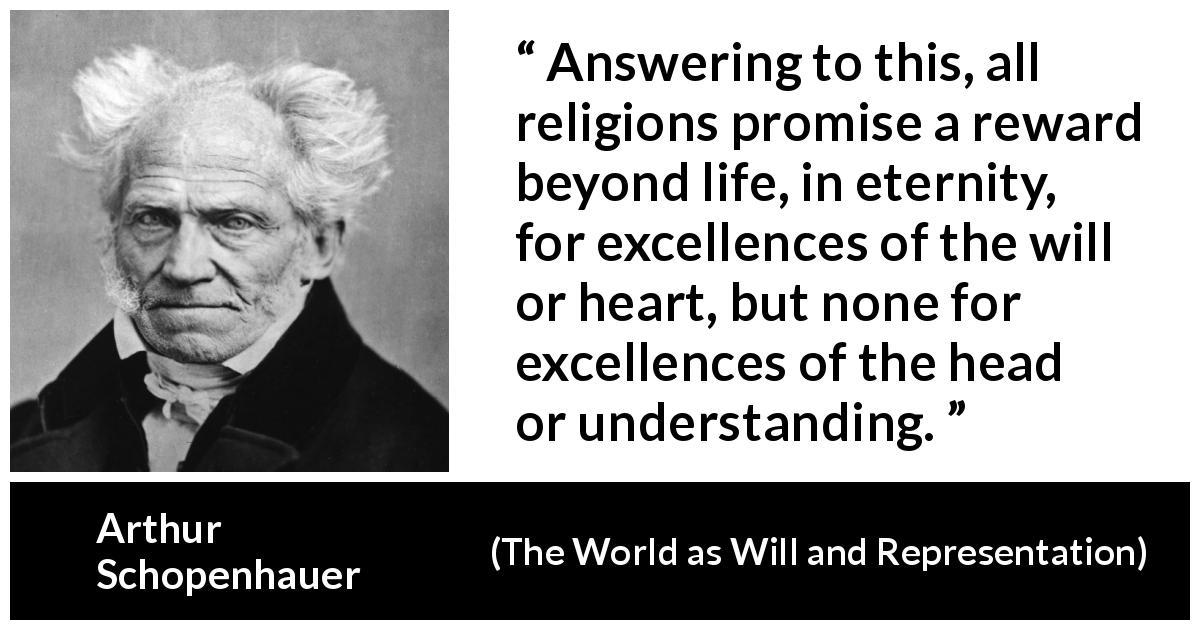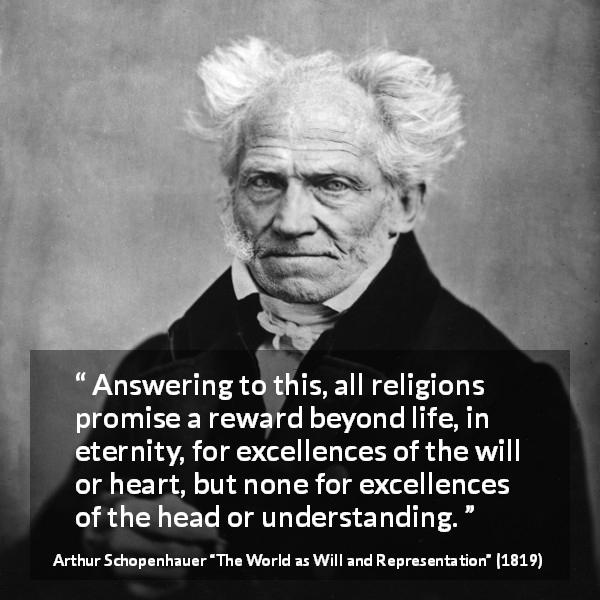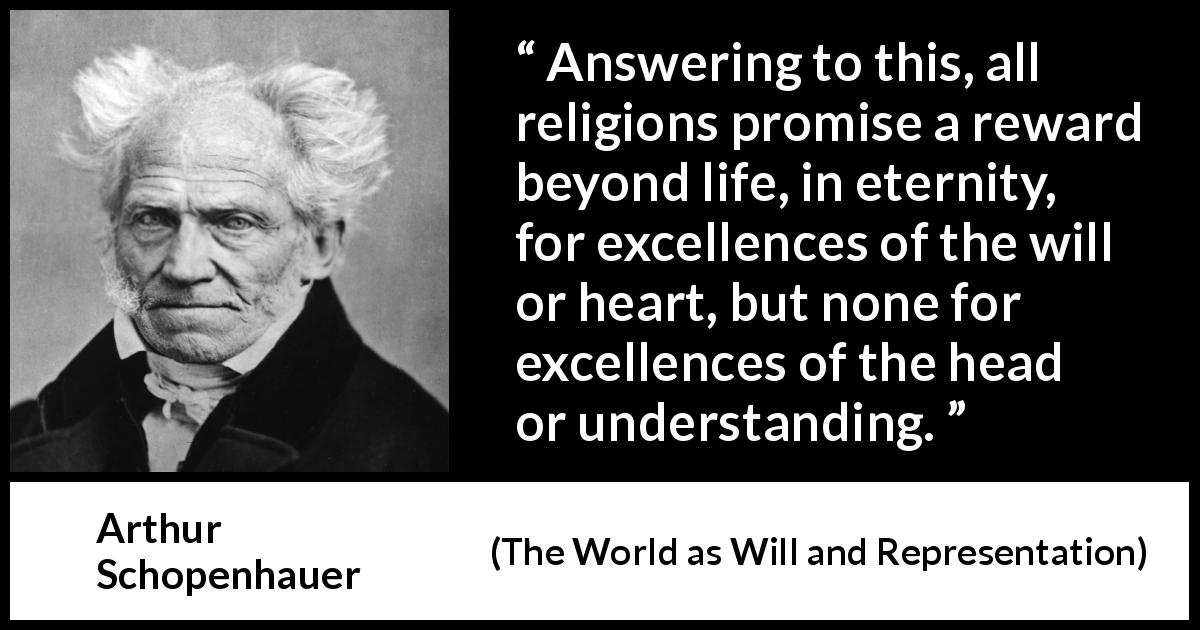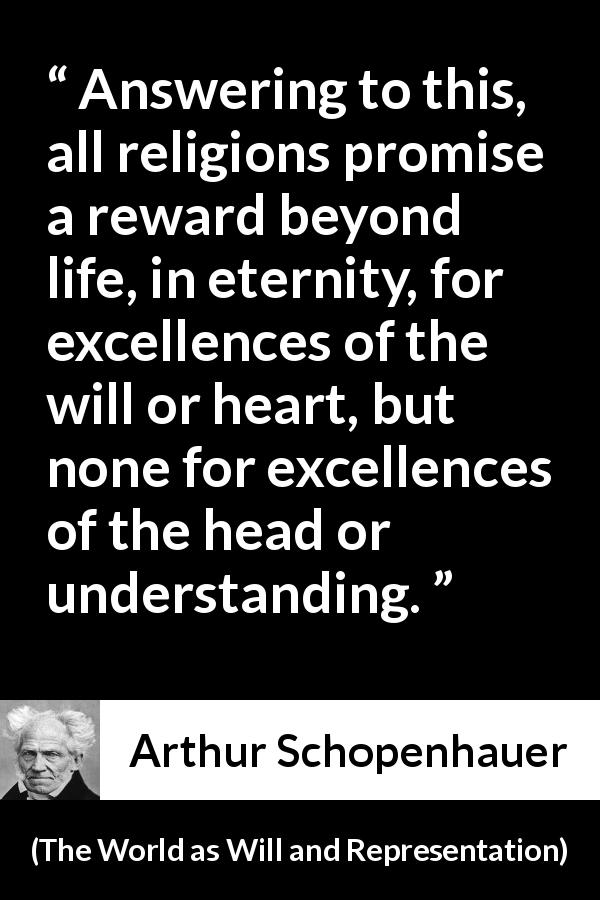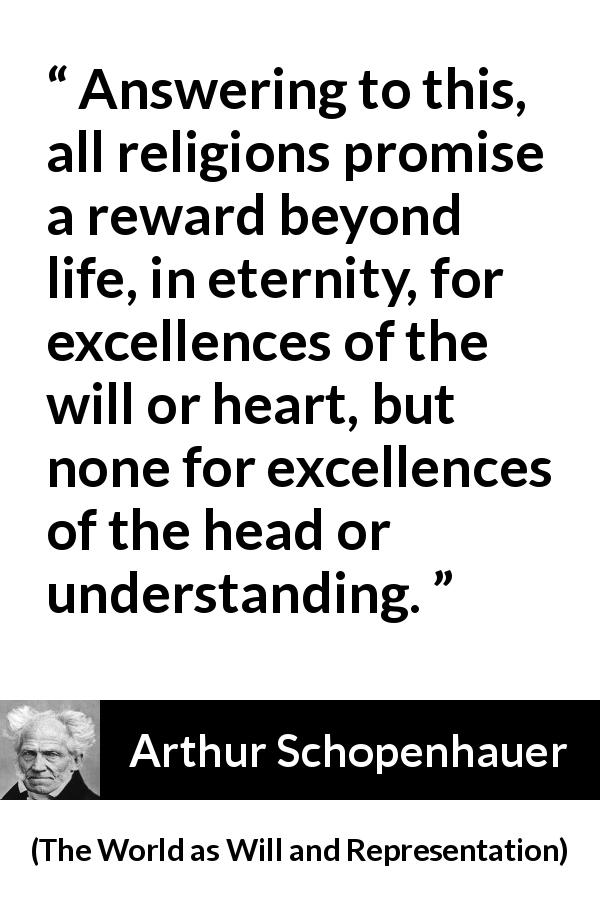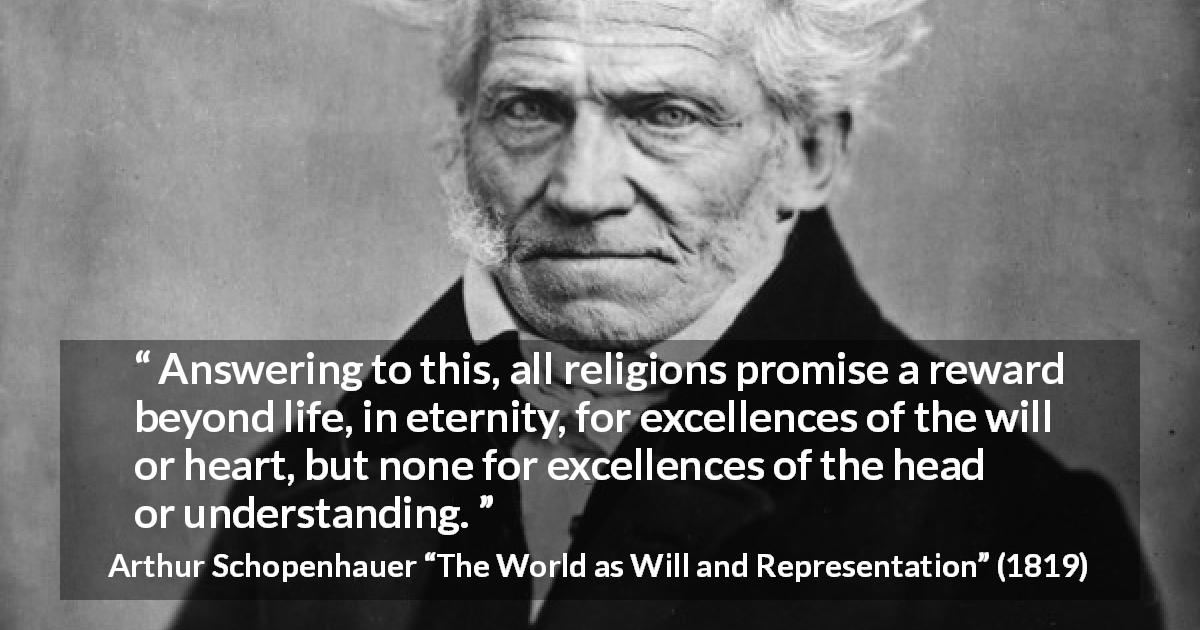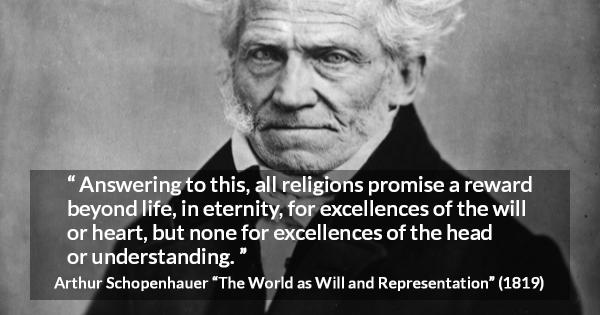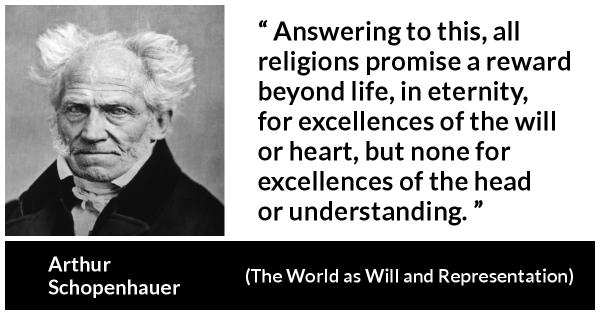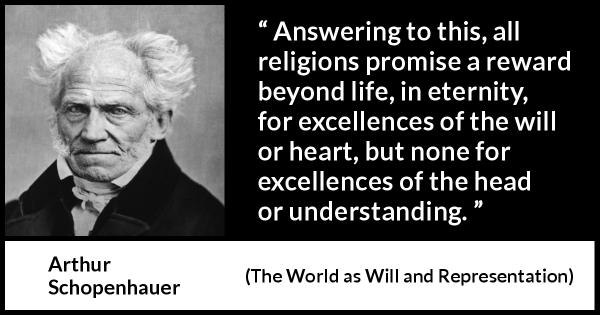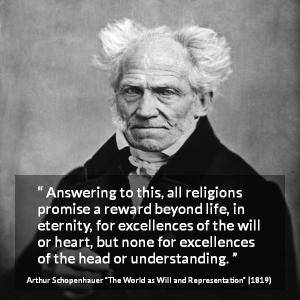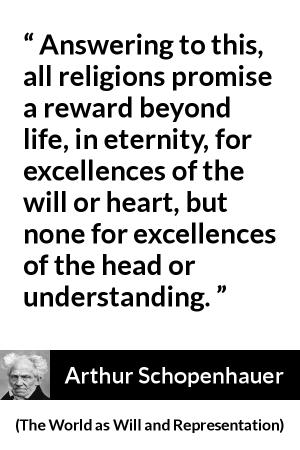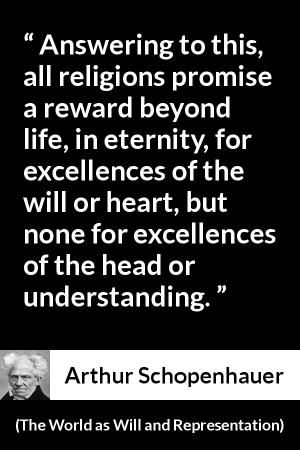“ Answering to this, all religions promise a reward beyond life, in eternity, for excellences of the will or heart, but none for excellences of the head or understanding. ”
Arthur Schopenhauer, The World as Will and Representation (1819). copy citation
| Author | Arthur Schopenhauer |
|---|---|
| Source | The World as Will and Representation |
| Topic | understanding heart will religion reward |
| Date | 1819 |
| Language | English |
| Reference | |
| Note | Translated by R. B. Haldane and J. Kemp |
| Weblink | http://www.gutenberg.org/files/40097/40097-h/40097-h.html |
Context
“No one, on the contrary, has ever taken this view of moral excellences, although they also are innate; they have rather always been regarded as something proceeding from the man himself, essentially belonging to him, nay, constituting his very self. But it follows now from this that the will is the true nature of man; the intellect, on the other hand, is secondary, a tool, a gift.
Answering to this, all religions promise a reward beyond life, in eternity, for excellences of the will or heart, but none for excellences of the head or understanding. Virtue expects its reward in that world; prudence hopes for it in this; genius, again, neither in this world nor in that; it is its own reward. Accordingly the will is the eternal part, the intellect the temporal.” source
Answering to this, all religions promise a reward beyond life, in eternity, for excellences of the will or heart, but none for excellences of the head or understanding. Virtue expects its reward in that world; prudence hopes for it in this; genius, again, neither in this world nor in that; it is its own reward. Accordingly the will is the eternal part, the intellect the temporal.” source
